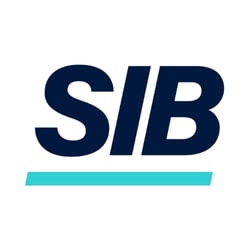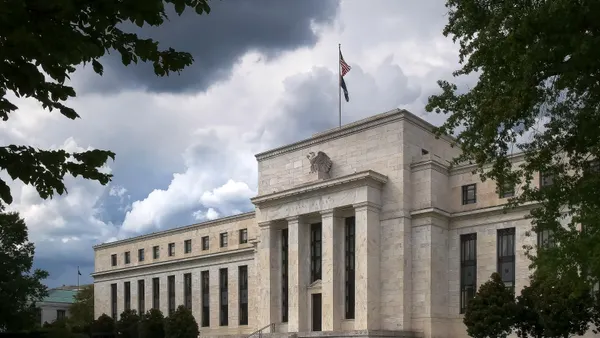Dive Brief:
- Global shipping and mailing company Pitney Bowes appointed board director Paul Evans to become CFO, EVP and treasurer, effective July 29, according to a Wednesday release. Evans, who steps down from the board to take the finance reins, succeeds Robert Gold, who is departing just about five months after his appointment was announced in February, according to a company release at the time.
- Evans, 57, has served as a member of the board since October 2024 and as a managing member at FSS Capital, an advisory firm that provides managed capital to startup ventures, since 2021, according to a Securities and Exchange Commission filing. He previously also served as COO and director of America’s Auto Auction Group, an automotive remarketing entity, from January 2023 to October 2023. His past experience also includes a stint in 2020 and 2021 as CFO of Sevan Multi-Site Solutions, a private-equity-backed provider of construction services, and he also previously held multiple roles including CAO at MYR Group, a public holding company.
- A company spokesperson on Friday declined to comment as to the reasons for the swift change in finance leadership, pointing to CEO Kurt Wolf’s comments during the company’s earnings call this week. “With respect to the CFO position, this in no way — the change in no way reflected on Bob. He's an excellent CFO. Just — it's not often that I feel like we have an opportunity to bring in a talent like Paul,” Wolf said, noting that he had a “tremendous working relationship” with and the same values as Evans. “We have the same focus within running a business in terms of creating urgency, creating discipline, data-driven decision-making, et cetera. So it was just — it's really a comment on the opportunity that we had to bring somebody of Paul's caliber.”
Dive Insight:
The shift is the latest in a series of C-suite changes that the Stamford, Connecticut-based company has undergone recently. Last March, then-CFO Ana Maria Chadwick resigned after about three years in the role, in the wake of the company naming Jason Dies to fill in as interim CEO in October for outgoing Marc Lautenbach, CFO Dive previously reported. Chadwick subsequently took the CFO seat at the Acton, Massachusetts-based medical device maker Insulet.
Wolf, then a sitting director of Pitney Bowes, was named CEO in May, succeeding Lance Rosenzweig, who stepped down just seven months after being named CEO. The founder of Hestia Capital Management, Wolf is an “activist investor” that along with three other nominees from Hestia joined the board in 2023 after a proxy battle, according to a May 22 report from Hartford Business. In a letter to shareholders shared in the company’s Wednesday’s earnings release, Wolf said he served with Evans on the board of directors of GameStop in 2020 and 2021.
Evans “has a proven record of helping businesses successfully allocate capital, manage their balance sheets and pursue enhanced profitability. When Paul and I served together on the board of directors of GameStop in 2020 and 2021, we worked side-by-side to help recapitalize the balance sheet, eliminate debt and enhance shareholder value,” the letter states. Videogame retailer GameStop has been viewed as a so-called “meme stock,” with its shares rising nearly 700% in a few weeks in early 2021 but it has been missing from the latest surge in such trading, Barron’s reported.
The over 100-year-old Pitney Bowes has faced headwinds as it has sought in recent years to expand beyond its iconic postage meter and mailing equipment roots into parcel and e-commerce shipping, CFO Dive previously reported. In its second quarter, the company’s revenue ticked down to $462 million, a 6% decrease year-over-year, but the company’s GAAP net income improved, hitting $29.9 million, compared to a $24.9 million loss in the year-earlier period, the company reported this week.
Under the terms of his employment letter, Evans will receive an annual base salary of $600,000, less certain withholdings and payroll deductions, an annual incentive award with a target value of 80% of his annual salary and an annual long-term equity base incentive award with a target grant date value of $1.5 million, according to the SEC filing.
















